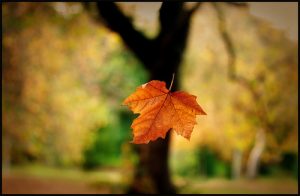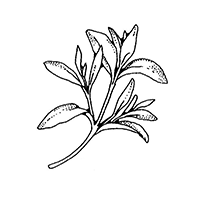I recently pulled a small book that is an old favorite from my shelf: The Fall of Freddie the Leaf by Leo Buscaglia. Th ose of us “of a certain age” remember Leo as a loving figure on public television who promoted humans over things, and always offered hugs to anyone in the audience who wanted one. His “Love 1A” non-credit, non-graded class began when one of his college students died from suicide, and he was trying to understand this loss.
ose of us “of a certain age” remember Leo as a loving figure on public television who promoted humans over things, and always offered hugs to anyone in the audience who wanted one. His “Love 1A” non-credit, non-graded class began when one of his college students died from suicide, and he was trying to understand this loss.
In the book, Freddie is a young leaf who builds a relationship with with his best leaf friend, Daniel. Daniel helps Freddie understand the life and death cycle of leaves and talks with him about what they experience throughout the summer and autumn. One by one, the leaves begin to fall. When Freddie is the last leaf left on his tree in an early snowfall, he eventually lets go and experiences a peaceful fall to the ground. This book is often used to help explain death as a natural part of life to children.
At this time of year, I think our own human cycle, in tune with the natural world, begins to shift toward endings, death, loss, and grief. We are still losing the light; it won’t begin to return until Winter Solstice. We pull out annuals from our gardens and flower beds, thanking them for their beauty. We also begin to pull inside ourselves and hibernate in our homes as the days and nights get colder, with less contact with neighbors. Perhaps not as busy with yard work, outdoor sports or activities, and community events, we may become restless or uncomfortable, as more time and the natural inclination to think about our own losses rises to the forefront. The upcoming holidays also bring thoughts of loved ones who have died and who will not be with us this year. Death is not the only loss we consider; we may have had a decline in our mental or physical health recently, or lost an important relationship, or a job, or any kind of dream we had. I believe the loss of a dream for our lives is often the hardest loss of all.
Experiencing loss is a natural part of life, but we don’t always like it. While grief is a natural process that happens emotionally, physically, mentally, and spiritually from a loss, we often try to end it prematurely or stuff it somewhere, because, well, sad is a heavy and vulnerable emotion to feel. Our culture does not generally support those grieving to do it openly and as long as they need, or to listen to their stories of loss, or help with rituals that give grief a good place. Many of my clients have experienced the significant loss of a parent or grandparent or another person who loved and supported them, and have not really grieved consciously and completely, and so they often experience depression, anger, physical symptoms, or just a sense of emptiness or incompleteness. Real grieving often involves the overwhelming depths of sobbing deeply, or the heaviness of sinking down low, almost as if we are retreating to our winter roots under the ground. These intense and dark experiences are not always comfortable either, but they can be very healing.
I will revisit the topic of grief and loss again, but for now, I appreciate how re-reading Freddie – and remembering Leo – helped me remember how natural the process of life and death is. All of us reading this are experiencing life, and all of us will experience death. There are parts of our lives where relationships and dreams have grown, and parts where they have ended or changed. They are all part of the same circle. As I watch leaves fall this month, I remember Freddie and Daniel, and I do my best to be present with my own natural cycle. Be well.
